Ethiopia's Economic Growth and Potential
As I delve into the question of whether Ethiopia is the richest country in Africa, I am struck by the remarkable economic growth the nation has experienced in recent years. According to the World Bank, Ethiopia's economy has been growing at an average annual rate of 9.4% between 2010 and 2019, making it one of the fastest-growing economies in the world. This impressive growth rate has been driven by a combination of factors, including significant investments in infrastructure, agriculture, and manufacturing.
One of the key drivers of Ethiopia's economic growth has been the government's focus on developing the country's infrastructure. Over the past decade, Ethiopia has invested heavily in the construction of roads, railways, and power plants, which have helped to improve connectivity and reduce transportation costs. These investments have also attracted foreign direct investment (FDI) into the country, with China being one of the largest investors.
"Ethiopia has become a hub for light manufacturing, especially in the textile and garment sector, which has been attracting a growing number of foreign investors," notes the World Bank.
Another factor contributing to Ethiopia's economic growth has been the expansion of its agricultural sector. Agriculture accounts for around 34% of Ethiopia's GDP and employs over 70% of the population. The government has implemented various policies to support the sector, such as providing farmers with improved seeds, fertilizers, and irrigation systems. These efforts have helped to increase agricultural productivity and boost exports of crops such as coffee, sesame, and cut flowers.
Challenges and Future Prospects
Despite Ethiopia's impressive economic growth, the country still faces significant challenges in its quest to become the richest nation in Africa. One of the main challenges is the high level of poverty and inequality in the country. According to the World Bank, around 24% of Ethiopia's population lives below the national poverty line, and income inequality remains high. Addressing these issues will require sustained efforts to promote inclusive growth and provide access to basic services such as education and healthcare.
Another challenge facing Ethiopia is the need to diversify its economy and reduce its dependence on agriculture. While the agricultural sector has been a key driver of growth, it is vulnerable to climate shocks and price fluctuations in global markets. To mitigate these risks, Ethiopia needs to continue investing in other sectors such as manufacturing, services, and tourism. The government has already taken steps in this direction, such as establishing industrial parks to attract foreign investors and promote exports.
Looking to the future, Ethiopia's economic prospects appear bright, but much will depend on the government's ability to maintain political stability, attract foreign investment, and address the country's social and economic challenges.
"Ethiopia has the potential to become a middle-income country by 2025, but it will require sustained reforms to improve the business environment, enhance productivity, and promote inclusive growth," according to the African Development Bank.If Ethiopia can successfully navigate these challenges, it could well become one of the richest countries in Africa in the coming years.
| Indicator | Value |
|---|---|
| GDP (2020) | $96.61 billion |
| GDP per capita (2020) | $855 |
| GDP growth rate (2019) | 9.0% |
| Inflation rate (2020) | 20.6% |
In conclusion, while Ethiopia may not currently be the richest country in Africa in terms of GDP per capita, its rapid economic growth and potential for future development make it a strong contender for this title in the coming years. However, much will depend on the government's ability to address the country's social and economic challenges and promote sustainable and inclusive growth. As someone who has been following Ethiopia's economic journey closely, I am excited to see what the future holds for this dynamic and rapidly-evolving nation.
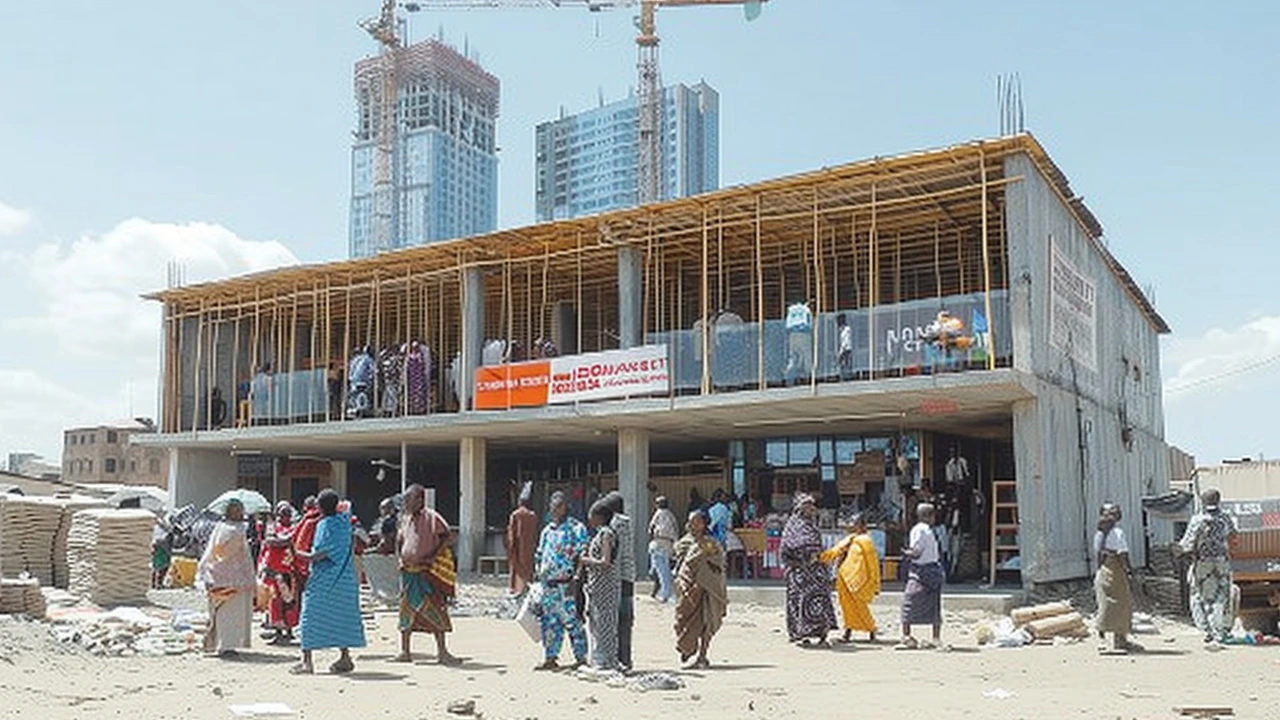
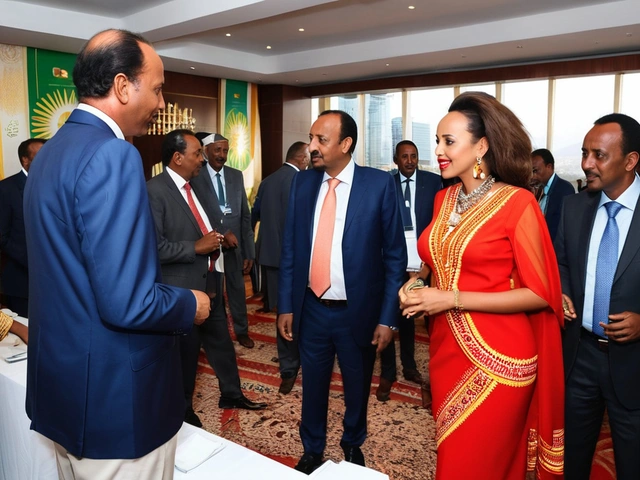 Exploring the Existence of Ethiopian Billionaires
Exploring the Existence of Ethiopian Billionaires
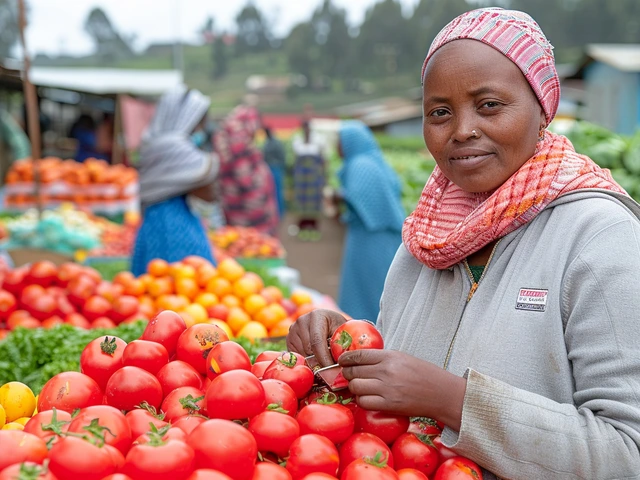 Understanding Wage Rates in Ethiopia: What You Need to Know
Understanding Wage Rates in Ethiopia: What You Need to Know
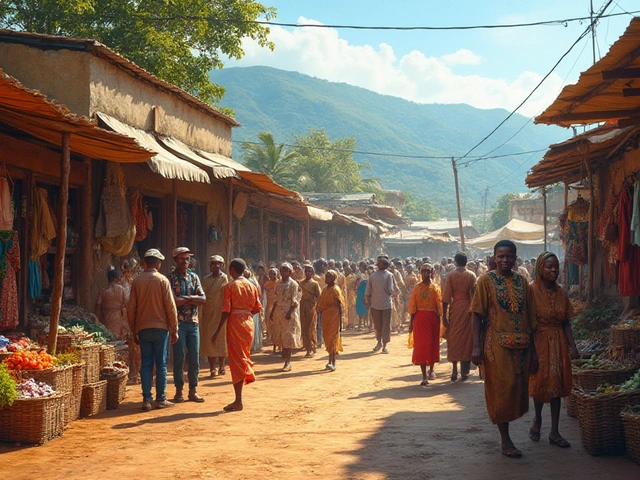 Navigating the Investment Landscape in Ethiopia
Navigating the Investment Landscape in Ethiopia
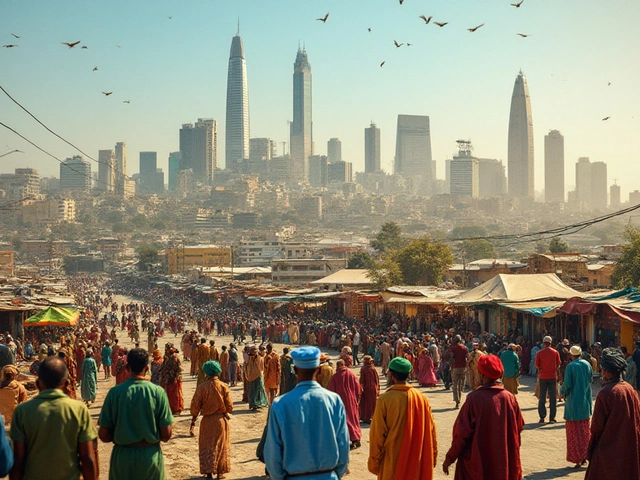 Investing In Ethiopia: How Much Do You Really Need?
Investing In Ethiopia: How Much Do You Really Need?
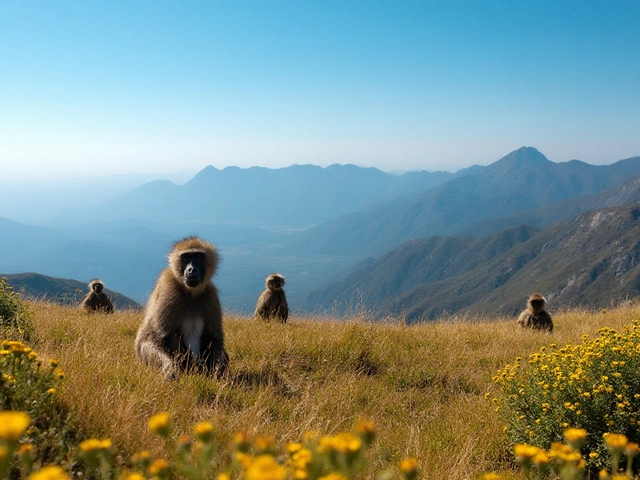 Why Ethiopia is a Must-Visit Destination: Culture, History, and Natural Beauty
Why Ethiopia is a Must-Visit Destination: Culture, History, and Natural Beauty
Milo Cado
April 5, 2024 AT 22:51Thank you for sharing this comprehensive overview of Ethiopia's economic trajectory. The data you presented illustrates a remarkable annual growth rate that surpasses many developing economies. It is encouraging to see substantial investments in infrastructure such as roads, railways, and power generation. These projects lay the groundwork for a more connected and efficient market system. Moreover, the emphasis on agricultural modernization aligns well with the nation's demographic realities. Providing farmers with improved seeds and irrigation can boost productivity and export potential. The emerging textile and garment sector also offers promising diversification opportunities. Your reference to foreign direct investment, particularly from China, underscores the growing confidence of international partners. While the growth figures are impressive, the challenges you highlighted-poverty, inequality, and climate vulnerability-remain significant. Addressing these issues requires inclusive policies that prioritize education and healthcare. The prospect of reaching middle‑income status by 2025 is ambitious yet plausible with sustained reforms. It is vital for the government to maintain political stability to attract continued investment. Additionally, expanding industrial parks can further stimulate manufacturing output. The tourism sector, though less emphasized, holds untapped potential for revenue generation. In summary, Ethiopia's economic momentum is buoyant, and careful stewardship could translate into broader prosperity. 😊🚀
MONA RAMIDI
April 6, 2024 AT 01:38Honestly, this glowing assessment feels like a sugar‑coated fairy tale masquerading as economics.
grace riehman
April 6, 2024 AT 04:25i think u r onto sumthing big here, but dont forget that alot of peeps still cant even get clean water. the gov't gotta work on basic stuff before they chase shiny new factories. also, climate change is real and it might hit the farms hard if they dont adapt soon.
Vinay Upadhyay
April 6, 2024 AT 07:11Oh, bravo, another “let's talk about basic stuff” sermon-how original. While you’re busy pointing out the obvious, you might also note that the World Bank data already flags the water‑access gap. Furthermore, your claim that “a lot of people can’t even get clean water” is statistically proven; no need for rhetorical flourish. And by the way, “gov't” should be “government,” unless you’re intent on fostering linguistic decay.
Eve Alice Malik
April 6, 2024 AT 09:58It's fascinating how quickly Ethiopia's GDP has climbed, but i’m curious about the job quality in those new factories. Are workers getting fair wages, or is it just cheap labor for export markets? Also, what’s the latest on the railway project-has it actually cut transport costs yet?
Debbie Billingsley
April 6, 2024 AT 12:45The narrative that Ethiopia is “on the rise” overlooks the fact that many African nations are outperforming it when measured by GDP per capita. Pride in development should not blind us to comparative shortcomings.
Patrick Van den Berghe
April 6, 2024 AT 15:31Wow amazing growth yet still so many people living in poverty how can that be
Josephine Gardiner
April 6, 2024 AT 18:18While the statistical indicators presented are undeniably impressive, it remains incumbent upon analysts to contextualize such figures within the broader spectrum of socio‑economic equity. The juxtaposition of rapid GDP expansion against persistent poverty rates warrants a nuanced examination.
Jordan Fields
April 6, 2024 AT 21:05Data shows 9% growth; inequality persists.
Divyaa Patel
April 6, 2024 AT 23:51Behold the phoenix of the Horn, soaring on the thermals of ambition yet tethered by the chains of disparity; a nation that dances between promise and peril, singing hymns of progress while the shadows of hunger linger like an uninvited guest at a grand feast.
Larry Keaton
April 7, 2024 AT 02:38Yo, i totally get the hype but we gotta keep it real-if the gov’t don’t fix education and health soon, all that growth is just a flashy illusion. Let's push for real change together, not just pat ourselves on the back.